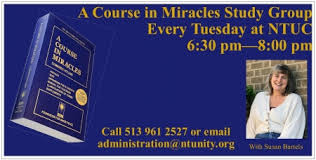The history of a course in miracles is as early as the history of man’s in the grassland of eastern Africa, in the valleys in Ethiopia, when early man was passing knowledge, skills and attitude from older generation to the younger generation, even when they were roaming the grassland of Africa, that was the earliest form of education.
When cultures began to extend their knowledge beyond the basic skills of communicating, trading, gathering food, religious practices, etc., formal education and schooling, eventually followed. Schooling was in place in Egypt between 3000 and 500BC. And the oldest University in the world is the University of Kaureem, Morocco founded in1088
Adults trained the young of their society in the knowledge and skills they would need to master and eventually pass on. The evolution of culture, and human beings as a species depended on this practice of transmitting knowledge. In the early societies this was done orally and through imitation.
Story telling continued from one generation to the next. Oral language developed into written symbols and letters. The depth and breadth of knowledge that could be preserved and passed soon increased exponentially.
Formal education is any form of instruction or education provided by a recognized, structure institutions teaching courses or even at home, following a planned course of study. Most formal education is classroom-based, provided by trained or specialized instructors. As normally used, the term formal education refers to the structured educational system.
The term non-formal education is used to distinguish formal education from self-education obtained through personal experiences, life and general reading. In contrast, non-formal education refers to education that takes place outside of the formally organized schooling system. This type of education is called non-formal because;
It is not compulsory and it does not lead to formal certifications and mostly acquired outside the so-called school structured system. The word education is derived from educare (Latin) “bring up”, which is related to educere “bring out”, “bring forth what is within”, “bring out potential” and ducere, “to lead”
Education is any act or experience that has a formative effect on the mind, character or physical ability of an individual. In its technical sense, education is the process by which society deliberately transmits its accumulated knowledge, skills and values from one generation to another. The education training is chiefly from the old to the younger generation. Education helps you with your thought process and decision making abilities. |
Education gives you a solid foundation that you can build upon. Education is not just the piece of paper called diploma, they are those things you bump into during the process that enlightens your mind, which in turns tiger the intellect in you. That is the benefit of an educational process. The things you stumble into during the process.


